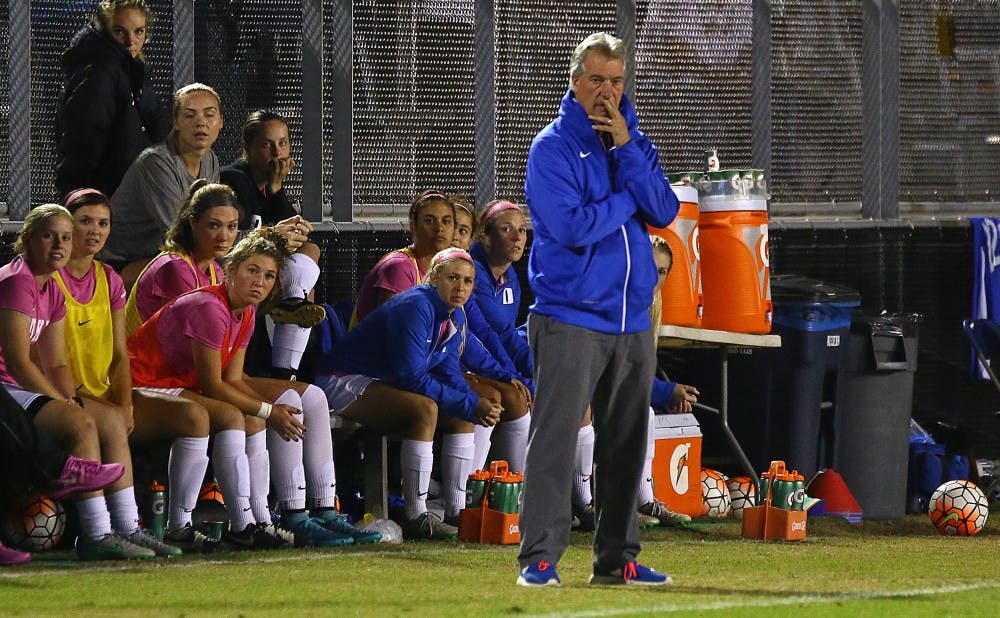When my father took me to a soccer stadium for the first time in Lima, I was just two or three years old. Although I did not become a soccer player, my very first childhood memories are associated with a green pitch, 22 guys kicking a white and black ball and a referee. My father never imagined the way the beautiful game would shape my life.
Even if he had had a vague idea, though, I am sure he would have taken me to the stadium with him every Sunday afternoon anyways despite my mother’s skepticism of this father-son bonding moment.
“What can you guys learn from 22 morons kicking a ball?”
A lot. Actually a lot, Mom.
Like any team sport, soccer gives you life lessons. Losses are part of the game and you have to learn how to deal with them. After a bad day, you have to keep moving forward and learn from your mistakes. Developing team chemistry boosts the group’s efficiency as standout individuals quickly learn that they are nothing if they do not do their best to reach a common goal.
Duke women’s soccer team—a squad I started following two years ago—made me realize how true these life lessons actually are. In August 2014, I went to Chapel Hill to take photos of a 1-0 loss against Ohio State for The Chronicle and despite the defeat against the Buckeyes, I fell in love with the Blue Devil team right away. Its 4-3-3 formation and its soccer style based on ball possession made me think of my beloved FC Barcelona, so I volunteered to take pictures of several games that year and wrote a profile of head coach Robbie Church for a magazine journalism class. Duke struggled that year and missed the NCAA tournament for the first time in 11 years—a heartbreaking end to the season—but it also strengthened my connection with Church’s squad, to the point that I promised him that I would become The Chronicle’s beat writer for the team.
That promise paid off, because the Blue Devils had one of the most impressive seasons in the history of the program in 2015, reaching the College Cup final in December. Getting to know Church and his players more deeply and writing game recaps and sidebars about their huge bounce-back last fall is absolutely one of the most cherished memories that I will take with me after my Duke life.
If there is any sport that really teaches what passion is, it is “fútbol,” especially if you are from Latin America like me. Former Argentina player Jorge Valdano once said, “Soccer is the most important thing among the least important things.” Some people might think that a true soccer fan is the person who wears a team’s jersey when going to classes or the individual who can list an entire roster by heart. I believe that true soccer fans are those people whose saddest day is when their team loses and whose happiest day is when their team wins. I am not exaggerating. My fiancée and friends often witness how radiant I am when Barcelona wins and how miserable I feel when the Catalan squad loses.
In that sense, soccer gives you a strong sense of community, a sense that you belong to a group of people who share and cherish the same history, the same traditions and the same values. It is, of course, an imagined community, but the bond it creates is so emotional and visceral that several people—like me with FC Barcelona and Duke—adopt this feeling as a significant part of their identities.
That is the wonderful and mysterious thing that makes “fútbol” unique—it is indeed the most important thing among the least important things.
My parents, of course, did not imagine that, almost 25 years after that foundational moment when my dad took me to a soccer stadium for the first time, I would find myself writing about “el deporte rey” in English for a college daily in a city of more than 200,000 people in the middle of North Carolina. There are no words to thank you for introducing me to what has become my passion, Dad.
Or maybe there are, and this column is precisely that—a way to thank my dad for making my life a little bit better through soccer and The Chronicle for giving me the opportunity to be part of one of the greatest college soccer stories ever.
Jesús Hidalgo is a Romance Studies graduate student.

